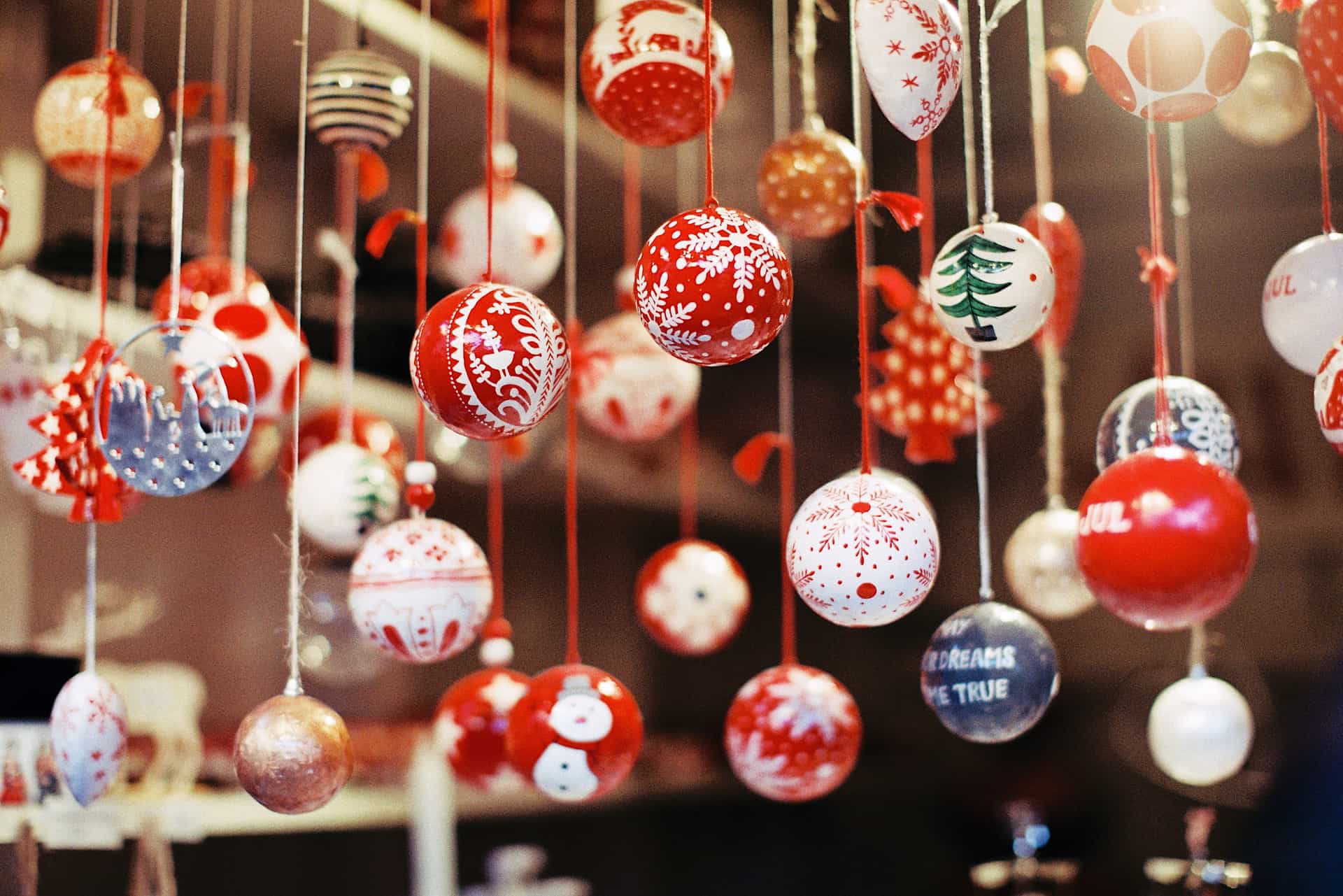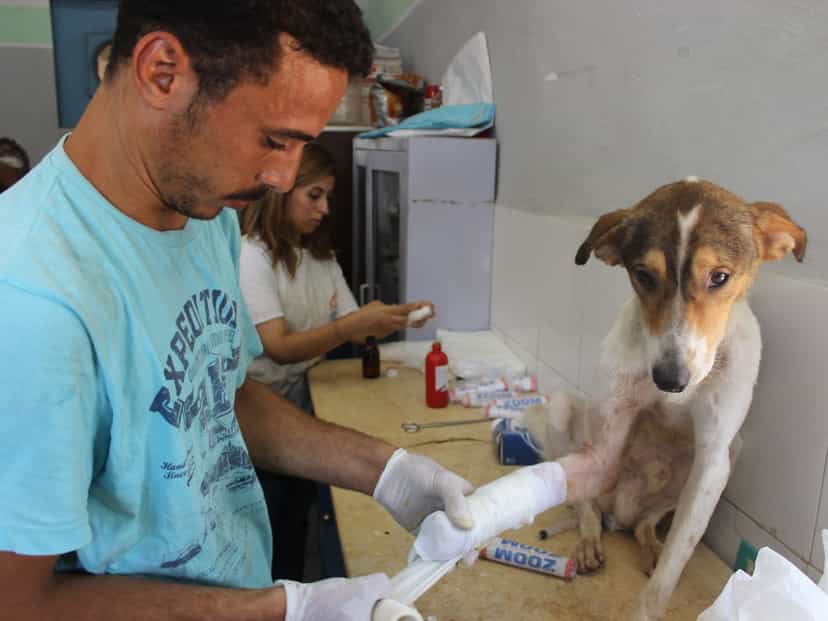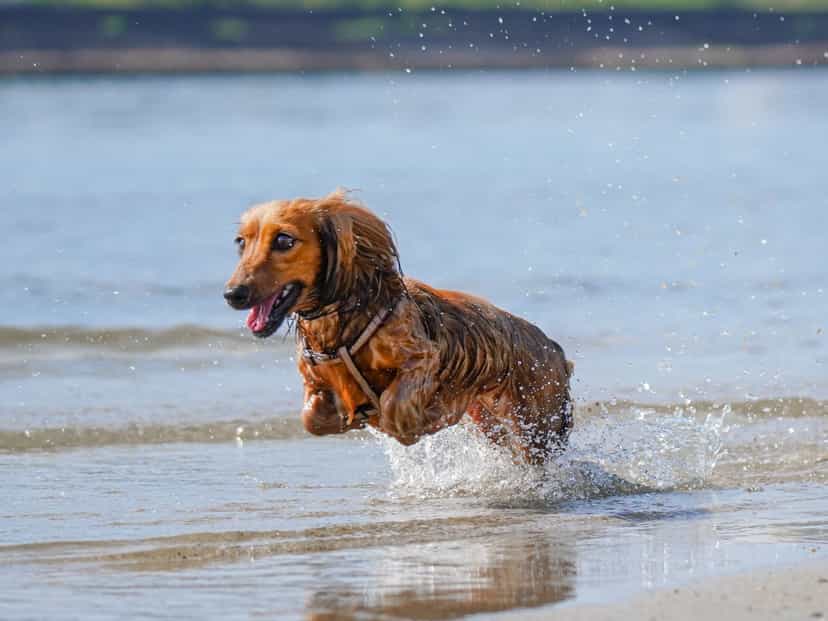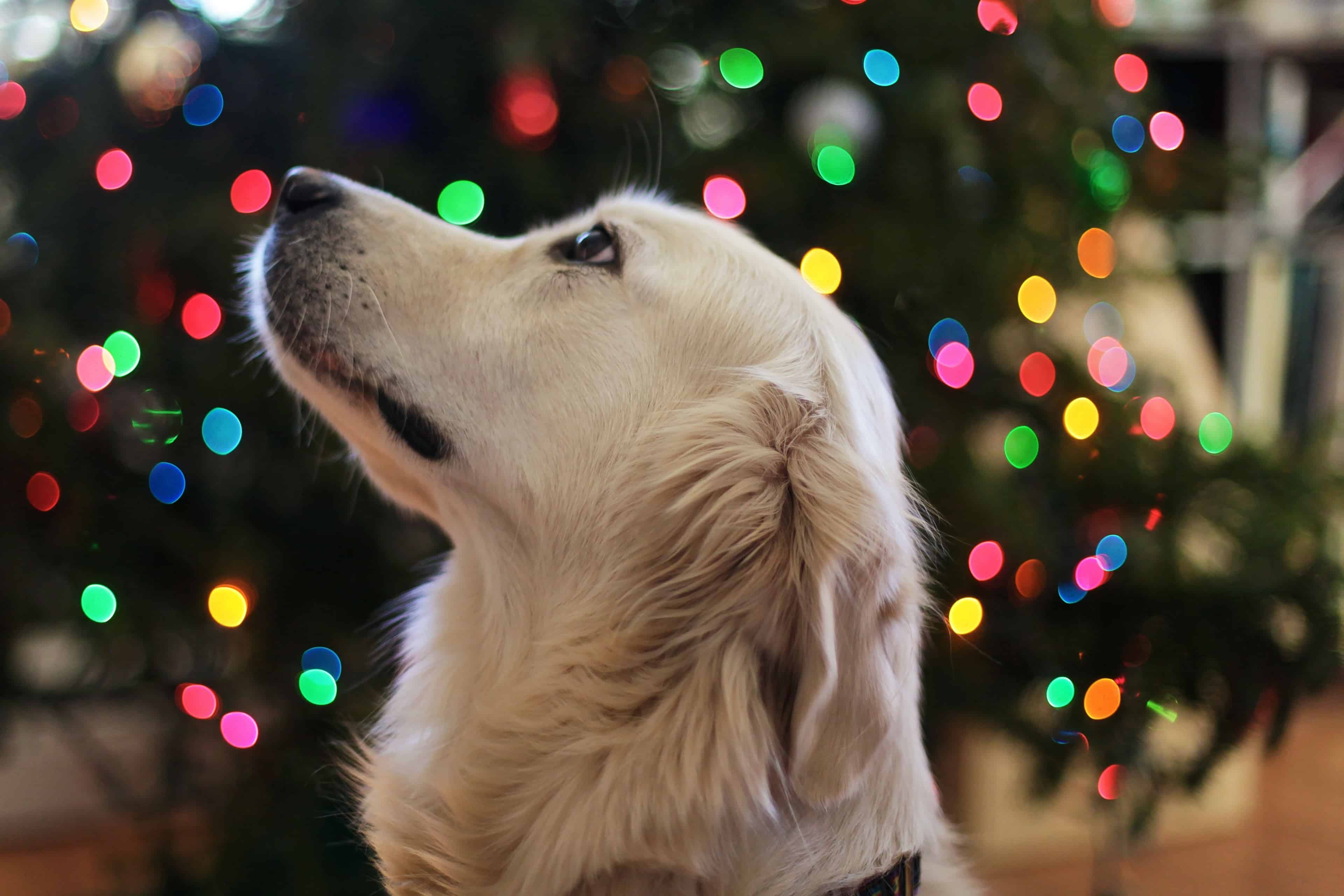
How do I keep my dog safe and well during the festive period? What are the common dangers for dogs at Christmas? Can my dog become stressed during the festive season? What in my house is poisonous for my dog during Christmas?
Whilst Christmas is usually an exciting and long-anticipated time of celebration for us, for many of our dogs it is less fun and for many vets it is an extremely busy time. We don’t want to spoil the Christmas cheer – with a bit of knowledge and common sense it is possible to enjoy the festive period whilst feeling confident that your dog is safe and well and, if the worst did happen, that you would know what to do. Here is a brief guide to some of the common dangers to beware of.
Toxic Ingestion
There are numerous things that are poisonous for dogs, many of which are safe for us and many of which are abundant at Christmas. Grapes, raisins, sultanas and currants should certainly be avoided, including mince pies, Christmas cake and Christmas pudding. Chocolate is also toxic – the darker the chocolate (the higher the cocoa content) the more toxic it is.
Many human medications, including pain killers and hangover cures, are unsuitable for dogs and those that are suitable need to be administered with care and in the correct dosage. We should never give our dogs human medications unless advised to do so by a vet.
Nuts, particularly macadamia nuts are another danger, as are onions, leek and garlic. The artificial sweetener xylitol (also known as birch sugar) is highly toxic and is in a lot of our products, especially low-sugar, low calorie or diabetic products.
Kathy Hobson of Dog First Aid Sussex is also owner to rescue dog Freddie who is an ex-street dog and will eat anything. ”It’s easy to overlook the risk of poisoning from plants. Poinsettia, amaryllis, ivy, mistletoe, bulbs and pine sap are all toxic to dogs. Pine needles can be another problem, either as a foreign body in a dog’s paw or as an intestinal blockage if eaten. It’s surprising what dogs will eat sometimes, especially if they’re bored or stressed. Giving your dog rich or fatty foods can also cause stomach upsets or pancreatitis.”
If you think your dog may have eaten something toxic please consult your vet immediately, or alternatively call the Animal Poison Line on 01202 509000.
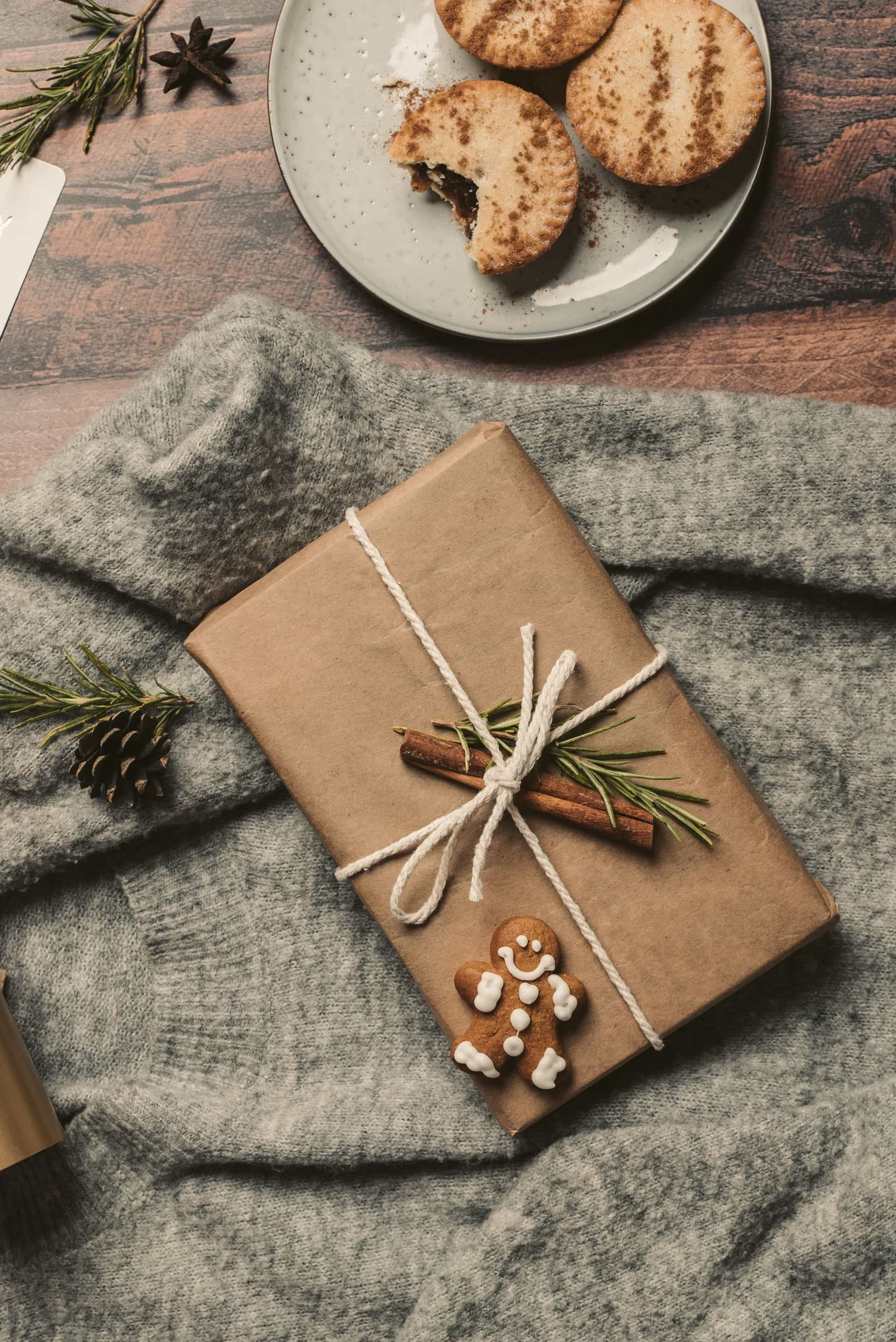
Intestinal blockages
As well as pine needles there are many other items which vets have seen causing intestinal blockages at Christmas. Tinsel is perhaps a surprising culprit, the foil wrappers from sweets and chocolates perhaps less so. Cooked bones are also very dangerous as they are prone to splintering.
Consider what gifts to buy for your dog this year. Rawhide, whilst it looks very attractive in its variety of colours and designs is actually very bad for dogs. The production process involves many nasty chemicals and it gets sticky or slimy when chewed causing a choking or blockage hazard. Some toys are not as durable as you might think so do your research and choose wisely. Look out for soft toy stuffing, squeakers or lights which may come out and be swallowed, rope toys which can unravel and leave lengths possible to swallow.
Kathy explains: “It’s a good idea to gently feel your dog’s tummy and notice their reaction. If they look uncomfortable, go stiff, show signs of discomfort or stress, or make a noise then they may be in pain and should be seen by a vet straight away. Also keep a mental note of their feeding, drinking, urination and bowel movements. Any changes to their regular pattern could be a sign of a problem such as a blockage.”
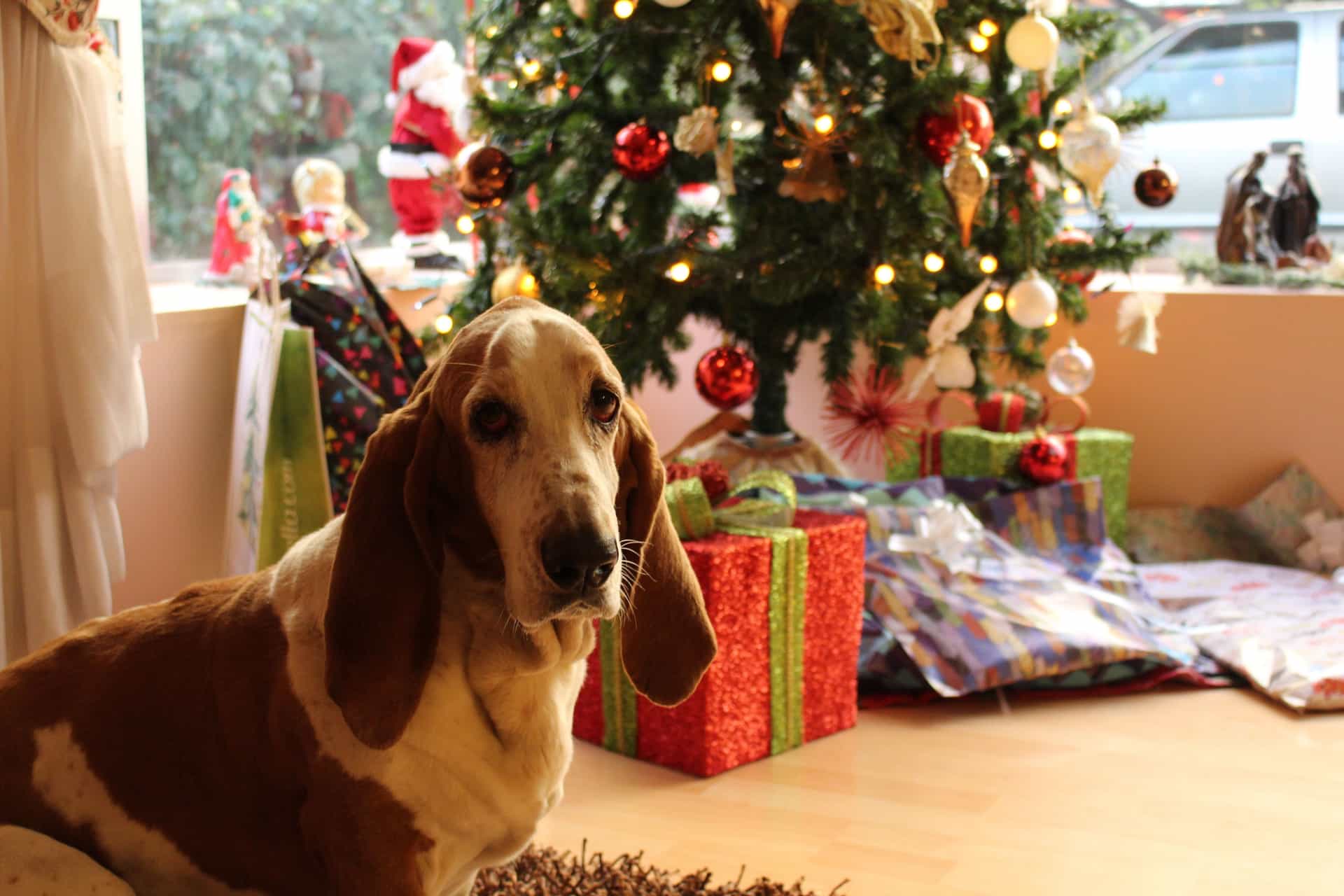
Stress
Dogs feel comfortable when they understand our behaviours, experience our (positive) emotions, have regular routines and know what to expect. During the festive period we often behave differently and this can be very stressful for many dogs. Being in or out of the house at different times, being excitable, receiving more frequent deliveries, moving furniture to make space for a Christmas tree, having more visitors than normal (especially if they are young children, babies or other dogs), staying up later, playing more/louder music are all potential stress factors for our dogs.
Kathy offers this advice: “Please consider your dog when you make your Christmas plans because they are important too. You should look for signs of stress in your dog and work to reduce or remove these ‘triggers’. You can desensitise your dog to many things with the correct training, but this takes time and patience so you should start early. For more advice on training or behaviour please speak to a canine trainer or behaviourist who uses modern techniques that are force-free and reward based.”
Dog First Aid are the only qualified UK company to offer the Continued Professional Development (CPD) accredited Emergency Canine Care™ (ECC) Course and to be approved by Trading Standards. The course is written by our vets and is regularly updated. Our four hour course is very comprehensive and includes topics such as choking, bleeding, CPR, seizures, shock, burns, poisoning, heatstroke, eye injuries, road traffic collisions and bites and stings, as well as how to examine your dog, how to check vital signs and what actions to take in an emergency.
Kathy Hobson is your local Dog First Aid trainer, covering East and West Sussex. You can contact her on kathy.hobson@dog-first-aid.com , 07498 557064, or on Facebook www.facebook.com/dogfirstaidsussex.
